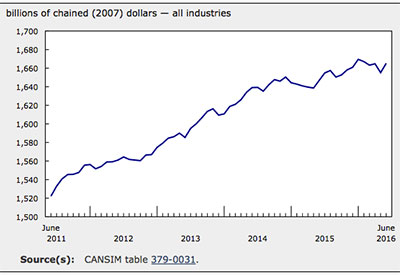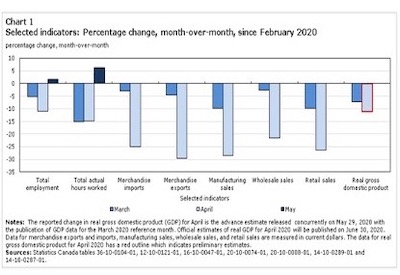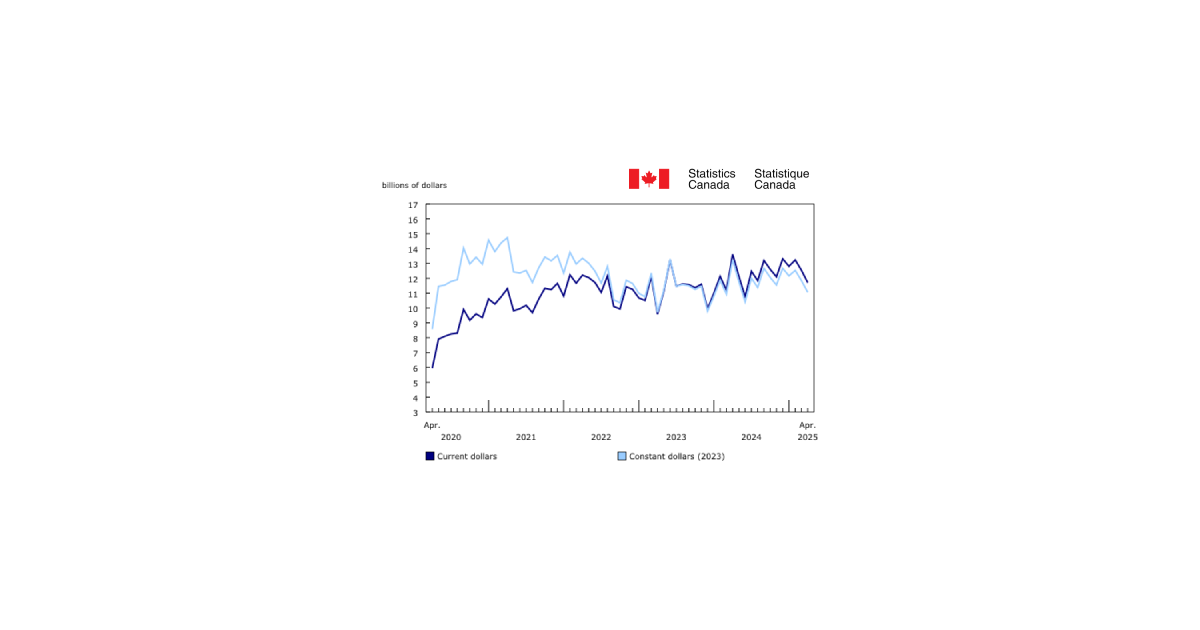NEW: Statistics Canada Estimates the Value of Digital Economic Activities

May 13, 2019
Advancements in technology and the Internet have fundamentally changed how people and businesses interact and how they produce, distribute and consume goods and services. As technological advancement continues and digitalization rapidly expands to more segments of the economy, there is an increasing need to accurately measure and assess its impacts.
Statistics Canada has released for the first time estimates of the economic value of digital economic activities, that is, activities that enable or are highly affected by digitization. Initial estimates are presented on the value, growth and nature of digital economic activities in Canada, the provinces and the territories.
To enhance these initial estimates and ensure that statistical measures reflect emerging economic phenomena, Statistics Canada will continue to explore innovative ways to measure the digitalization of the economy. This includes moving beyond traditional household and business surveys — many of which are not well suited to capturing digital economic activities — to using new data sources and methods, such as administrative data, crowdsourcing and web scraping.
Growth of digital economic activities outpaces economy-wide gross domestic product
The nominal gross domestic product (GDP) associated with digital economic activities was $109.7 billion, or 5.5%, of total economic activity in Canada in 2017. Digital economic activities, commonly referred to as the digital economy, include activities that enable digitization or are highly affected by it. For example, the digital economy includes the information technology equipment that it relies upon to function, as well as e-commerce transactions and the digital delivery of products to consumers.
While the digital economy is not an industry, to give a sense of its scale, it was larger as a proportion of the total economy than mining, quarrying and oil and gas extraction (4.8%), transportation and warehousing (4.6%) and utilities (2.4%) in 2015.
From 2010 to 2017, the nominal GDP of digital economic activities (+40.2%) grew at a faster pace than the overall economy (+28.0%). On an annual basis, the digital economy increased more than the total economy every year except in 2011 and 2017, which were years of strong growth in the energy sector.
Telecommunications was the largest contributor to the digital economy
Telecommunications, part of the digital-enabling infrastructure domain, was the largest contributor to the digital economy in Canada. However, its contribution declined from 36.9% in 2010 to 28.7% in 2017. Over the same period, the contribution of e-commerce more than doubled, from 5.5% of the digital economy to 12.4%.
Digital economy job growth more than four times that of the total economy
In 2017 there were 886,114 jobs associated with digital economic activities, representing 4.7% of all jobs in Canada.
While the proportion of digital economy jobs was smaller than the share of GDP and output, jobs associated with the digital economy (+37.0%) grew at more than four times the pace of economy-wide job growth (+8.6%) from 2010 to 2017.
The largest contributors to digital economy jobs in 2017 were support services (30.2%), followed by e-commerce (18.6%). The hardware domain (6.4%) represented the smallest share of digital economy jobs.
Contribution of the digital economy varies by province and territory
In 2017, digital economic activities accounted for the largest share of total economic activities in Ontario, Quebec and British Columbia. The proportion of digital economic activities in relation to overall economic activity was the smallest in the three territories and in Saskatchewan.
From 2010 to 2017, nominal GDP of the digital economy grew in every province and territory. However, Manitoba, Yukon and Nunavut saw slower digital economy growth over the seven-year period when compared with nominal economy-wide GDP.
On a regional basis, British Columbia (+49.1%) and Quebec (+41.0%) saw the largest gains in digital economy jobs from 2010 to 2017, while Newfoundland and Labrador (-9.1%) and the Northwest Territories (-3.5%) reported the only declines.
Source: Statistics Canada, https://www150.statcan.gc.ca/n1/daily-quotidien/190503/dq190503a-eng.htm

















